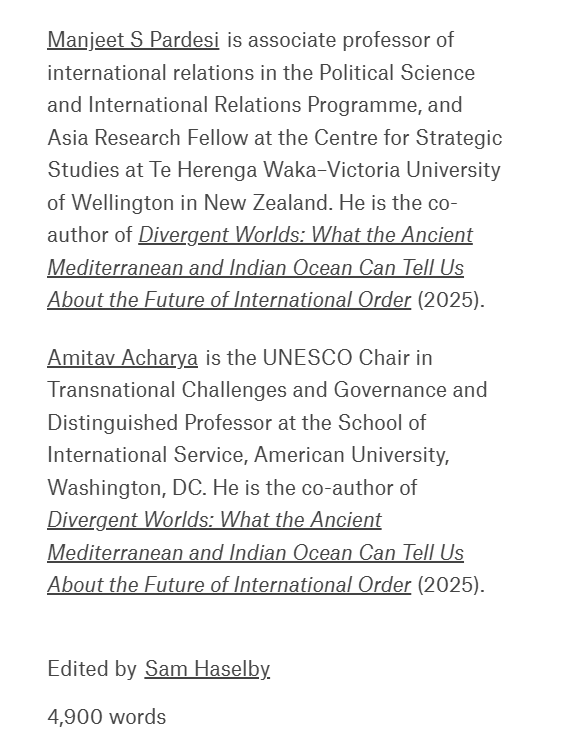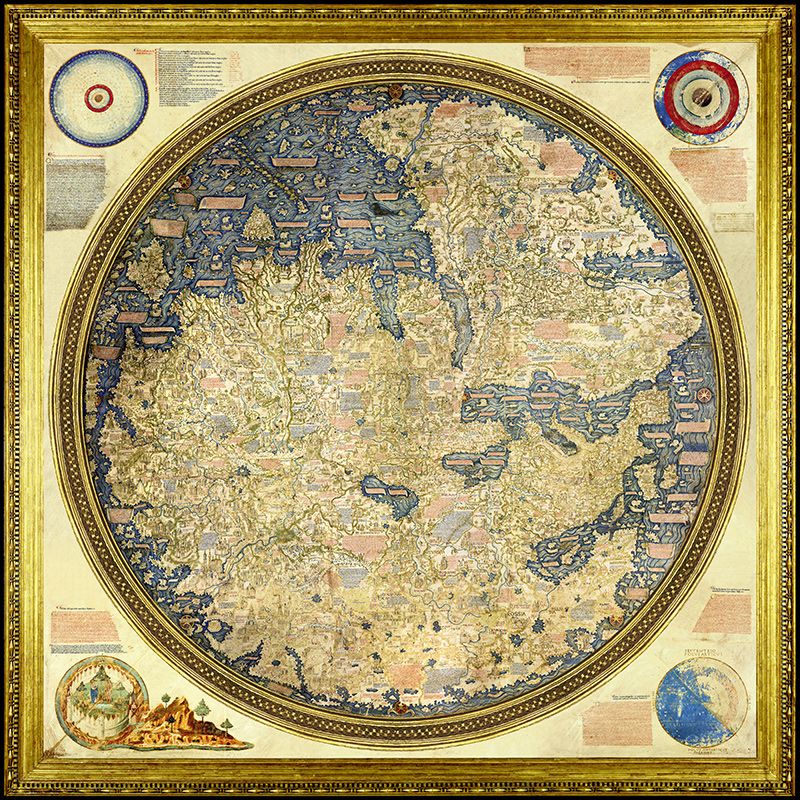Welcome to DU!
The truly grassroots left-of-center political community where regular people, not algorithms, drive the discussions and set the standards.
Join the community:
Create a free account
Support DU (and get rid of ads!):
Become a Star Member
Latest Breaking News
Editorials & Other Articles
General Discussion
The DU Lounge
All Forums
Issue Forums
Culture Forums
Alliance Forums
Region Forums
Support Forums
Help & Search
The world without hegemony

As Pax Americana ends, a multipolar order is emerging. The history of Southeast Asia holds lessons for what’s to come
https://aeon.co/essays/what-southeast-asian-history-tells-us-about-a-multipolar-order

Detail from Fra Mauro’s map of the world depicting Chinese junks sailing the Indian Ocean, c1450 (full image below). Courtesy Biblioteca Marciana, Venice

The liberal international order or Pax Americana, the world order built by the United States after the Second World War, is coming to an end. Not surprisingly, this has led to fears of disorder and chaos and, even worse, impending Chinese hegemony or Pax Sinica. Importantly, this mode of thinking that envisages the necessity of a dominant or hegemonic power underwriting global stability was developed by 20th-century US scholars of international relations, and is known as the hegemonic stability theory (HST).
In particular, hegemonic stability theory developed out of the work of the American economist Charles P Kindleberger. In his acclaimed book The World in Depression 1929-1939 (1973), Kindleberger argued that: ‘The world economic system was unstable unless some country stabilised it,’ and that, in 1929, ‘the British couldn’t and the United States wouldn’t.’ While Kindleberger was mainly concerned with economic order, his view was transformed by international relations scholars to associate hegemony with all sorts of things. In particular, a hegemonic power is generally expected to perform one or all of three main roles: first, as the dominant military power that ensures peace and stability; second, as the central economic actor within the global system; and third, as a cultural and ideational leader – either actively disseminating its political ideas across the system or serving as a model that others seek to emulate.
HST extends to all aspects of Pax Americana, and US naval power is seen as a ‘public good’ provided by the hegemon that secures the world’s maritime commons. However, many thinkers now see China’s growing power, especially naval power, as a consequential challenge to the US-led liberal international order, and fear that this assault on US hegemony portends disorder. The return of the US president Donald Trump to the White House has of course accentuated these liberal fears, especially in the US but also among America’s allies, particularly its Western partners. The premise of HST, crafted by Americans at the height of the American century, however, is wrong. History shows us that there are other pathways to international order, and that stability does not require hegemony. Maritime Asia’s long history indicates that, contrary to this American theory about international orders, a hegemon is not required for a functioning world order.
Since international relations theory emerged in the modern world with the rise of European power, it has tended to naturalise and universalise Western historical experiences. Western international relations scholars like to look towards classical Rome as the paradigmatic case of a hegemonic navy. The Roman navy had underwritten the stability of a maritime trading system, the Mediterranean. Anglo-American elites were educated to see the Pax Britannica in the 19th century and the Pax Americana after the mid-20th century as based on, and the rightful successors to, the Pax Romana in the classical Mediterranean.

World map by Fra Mauro, c1450. Courtesy Biblioteca Marciana, Venice
snip
1 replies
 = new reply since forum marked as read
Highlight:
NoneDon't highlight anything
5 newestHighlight 5 most recent replies
= new reply since forum marked as read
Highlight:
NoneDon't highlight anything
5 newestHighlight 5 most recent replies
The world without hegemony (Original Post)
Celerity
Yesterday
OP
marble falls
(69,134 posts)1. I think the Trump aberation has people thinking too hard.